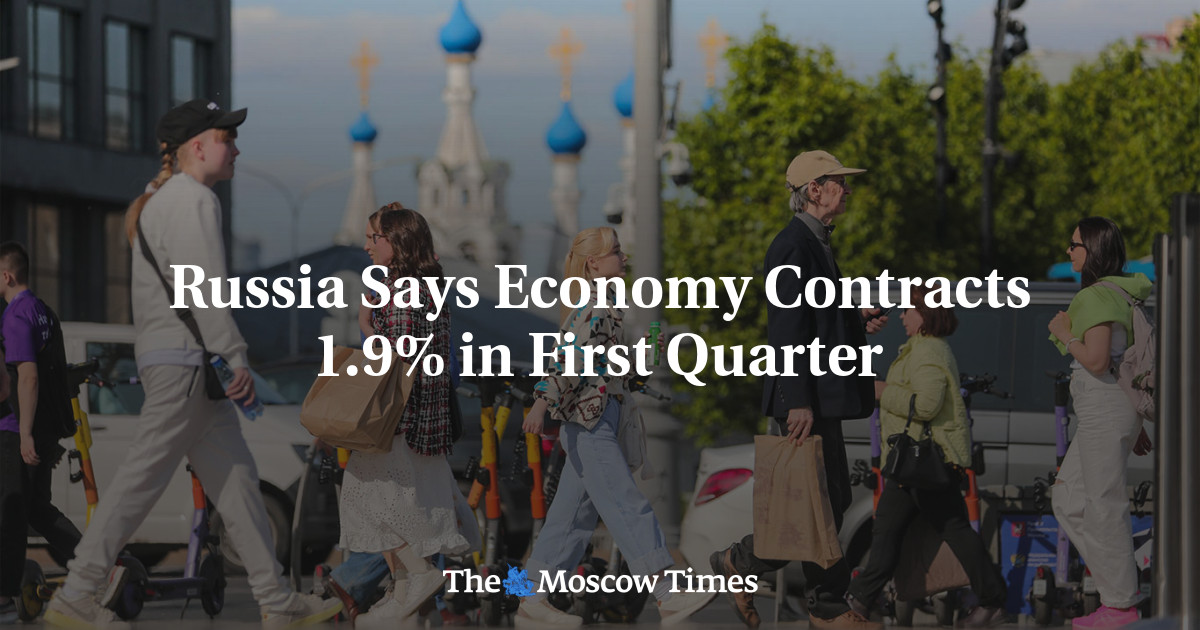
Russia’s gross domestic product shrank by 1.9% in the first quarter of 2023, the country’s statistic agency Rosstat said Wednesday.
The economy was weighed down by another wave of sanctions imposed over its offensive in Ukraine, including a ban by the European Union on Russian petroleum products, on top of a price cap agreed with the Group of Seven and Australia.
These sanctions had a measurable impact on the Russian economy.
Despite oil exports at their highest level since the offensive began, oil revenues were still down 43% compared to a year ago, the International Energy Agency (IEA) said in March.
Lower oil revenues directly impacted the budget deficit, which hit 3.4 trillion rubles ($42.3 billion) between January and April.
This is considerably more than the target deficit of 2.9 trillion rubles.
The Finance Ministry said the deficit was due to shrinking energy revenues (-52%) and increasing expenditures (+26%), partly due to the Ukraine offensive.
On Wednesday, Rosstat said however the construction and agricultural sectors had held up well during the first quarter.
Experts said that given this trajectory Russia’s public sector deficit could reach between 3-4% of its GDP, higher than the 2% target.
Inflation dropped in March to a 3.5% annual rate, and to 2.3% in April.
Russia’s low unemployment rate of 3.5% is not a healthy sign, but rather a symptom of its shrinking labor force.
Russia has for years dealt with a demographic crisis, which only worsened with the Ukraine offensive.
It left the economy contending with a shortage of workers, with various sectors struggling to fill posts.
Russian authorities now believe that growth will be driven by consumption rather than exports, including because of increasing real wages.